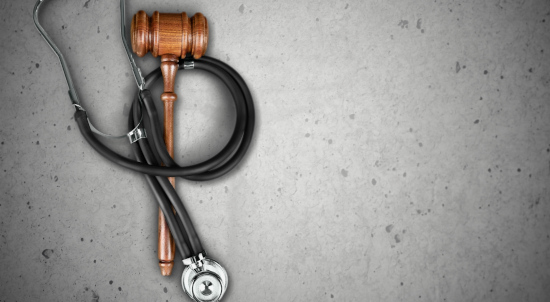
April 27, 2020 – The Wisconsin Supreme Court has unanimously upheld a jury verdict in favor of a physician facing a medical malpractice claim that alleged the doctor did not accurately trace a baby’s heart rate during child birth, causing injury.
The baby, London, was born with permanent neurological injuries. The jury received an “alternative methods” jury instruction that said the physician was not negligent if the jury found that she used reasonable care, skill, and judgment in administering any one of the recognized reasonable treatment methods for monitoring the baby’s heart rate.
The jury found the doctor was not negligent, but the appeals court reversed and remanded the case for a new trial. In Barney v. Mickelson, 2020 WI 40 (April 24, 2020), the supreme court unanimously reversed the appeals court and upheld the verdict.
“We conclude that based on all of the expert testimony introduced at trial, the jury was properly given the alternative methods instruction in this case,” wrote Justice Rebecca Dallet. “Therefore, we reverse the court of appeals and uphold the jury verdict.”
The opinion noted that 16 expert witnesses testified during a three-week jury trial to determine whether the physician, Dr. Julie Mickelson, and her team failed to properly respond to signs of fetal oxygen deprivation.
The parents of London Barney argued that Dr. Mickelson should have used a more accurate method to monitor the baby’s heart rate. However, two experts testified that an external monitor was accurately monitoring heart rate, and it was reasonable for Mickelson to keep using it rather than switch to a pulse oximeter or fetal scalp electrode.
Dr. Mickelson requested the “alternative method” jury instruction, but the plaintiffs objected on grounds that continued use of the monitor was not an “alternative.”
The trial judge gave the instruction, and the jury found that Dr. Mickelson was not negligent. But the appeals court reversed, concluding that Mickelson did not actually use an alternative diagnostic technique and was not entitled to the instruction.
Supreme Court Reverses
Experts disagreed about whether Dr. Mickelson improperly traced the baby’s heart rate in the 90 minutes before London was born, and whether continued use of the monitor was a reasonable alternative method. But the court sided with Mickelson.
“Since there was substantial testimony that Dr. Mickelson’s continued use of the external monitor was a reasonable method to continue to assess London’s heart rate and was within the standard of care, the alternative methods instruction was properly given by the circuit court in the case,” Justice Dallet wrote.
The supreme court distinguished a 1995 case in which the experts were unanimous that a spinal tap was the only method that existed to diagnose spinal meningitis, and the attending physician did not perform one despite a child exhibiting symptoms.
“Unlike Miller, where the experts were unanimous that only one diagnostic test existed, this record contained substantial expert testimony on which the jury could find that Dr. Mickelson’s choice to continue with the external monitor was a reasonable alternative method of monitoring London’s heart rate and was not analogous to ‘doing nothing,’” Justice Dallet wrote.
